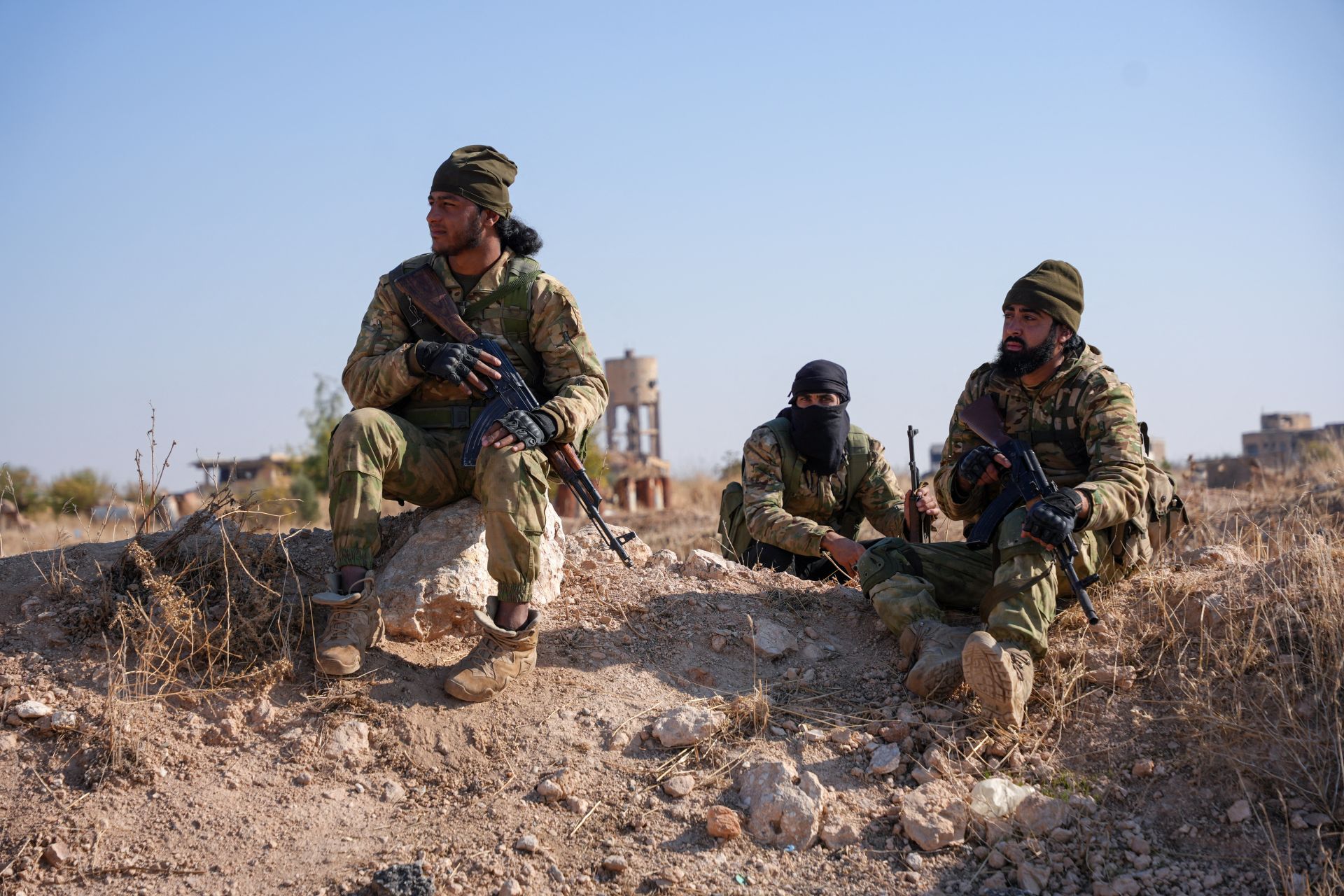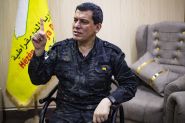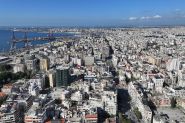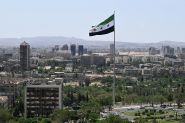- Home
- Middle East
- Syrian army lost control of Hama

Anti-government fighters take position at the Kweyris military airfield in the eastern part of Aleppo province on December 3, 2024. ©Rami al SAYED / AFP
The Syrian army lost control of Hama, according to the Syrian news agency, Sana.
The rebels took control of the city and freed all prisoners detained in the central incarceration center.
Syrian government forces were locked in heavy fighting around the central city of Hama on Thursday morning, trying to halt an advance of Islamist-led rebels, a war monitor said.
By late Wednesday, the Syrian Observatory for Human Rights said rebel fighters had "surrounded Hama city from three sides".
"Violent clashes took place during the night between the rebels and the regime forces", particularly in the Jabal Zayn al-Abidin area, just north of Hama, said the Britain-based monitor.
The head of the Observatory, Rami Abdel Rahman, said government troops were engaged in "fierce resistance and trying to stop the rebels' advance".
Hama is strategically crucial for the army, serving as a buffer to protect the capital Damascus.
The clashes follow a swift offensive by Islamist-led rebels who, in just days, seized significant territory, including Syria's second city, Aleppo, from President Bashar al-Assad's control.
Syrian state media quoted a military source late Wednesday as saying Russian and Syrian air forces, alongside artillery units, had conducted "concentrated strikes on the... terrorists" in the Hama area.
The Observatory says 704 people, mostly combatants but also 110 civilians, have been killed in Syria since the violence erupted last week.
It marks the most intense fighting since 2020 in a country ravaged by civil war broke out in 2011 but had been mostly dormant for several years.
The head of the Islamist rebel group Hayat Tahrir al-Sham (HTS), Abu Mohammad al-Jolani, on Wednesday visited Aleppo's landmark citadel.
Images posted on the rebels' Telegram channel showed Jolani waving to supporters from an open-top car as he visited the historic fortress.
In Hama, 36-year-old delivery driver Wassim said the sounds were "really terrifying" and the continuous bombing was clearly audible.
"I'll stay home because I have nowhere else to flee to," he said.
'Fierce battles'
While the advancing rebels found little resistance earlier in their offensive, the fighting around Hama has been especially fierce.
Assad ordered a 50 percent raise in career soldiers' pay, state news agency SANA reported, as he seeks to bolster his forces for the counteroffensive. A military source cited by SANA had earlier reported "fierce battles" against the rebels in northern Hama province since morning, adding that "joint Syrian-Russian warplanes" were part of the effort.
The Observatory said government forces brought "large military convoys to Hama" and its outskirts in the past 24 hours."Dozens of trucks" loaded with tanks, weapons, ammunition and soldiers headed towards the city, it said. "Regime forces and pro-government fighters led by Russian and Iranian officers were able to repel" an attack northwest of Hama. It said the fighting was close to an area mainly populated by Alawites, followers of the same offshoot of Shiite Islam as the president.
'Close contact'
The rebels launched their offensive on November 27, the same day a ceasefire took effect in the war between Israel and Hezbollah in neighbouring Lebanon.
Both Hezbollah and Russia have been key backers of Assad's government, but have been more recently mired in their own respective conflicts.
Russia, Iran and Turkey are in "close contact" over the conflict in Syria, Moscow said Wednesday. While Russia and Iran both back Assad, Turkey has backed the opposition.
The United Nations on Wednesday said 115,000 people have been "newly displaced across Idlib and northern Aleppo" by the fighting. Turkey meanwhile warned that it may be too soon to expect large-scale returns to Aleppo from among the three million Syrian refugees currently on its soil. "To those who say they wish to go back now we say, 'wait, it's not safe for the moment'," said Turkish Interior Minister Ali Yerlikaya.
The Observatory says the violence has killed 704 people, mostly combatants but also 110 civilians.
'Spread very thin'
Human Rights Watch on Wednesday warned that the fighting "raises concerns that civilians face a real risk of serious abuses at the hands of opposition armed groups and the Syrian government". Rights groups including HRW have since the start of the war documented violations of human rights on both sides, including what could amount to "crimes against humanity" by Syrian government forces. Until last week the war in Syria had been mostly dormant for several years, but analysts have said violence was bound to flare up as it was never truly resolved. "Many policymakers thought, well, Assad won, there is no war," said Rim Turkmani, director of the Syria Conflict Research Programme at the London School of Economics. But "we've been worrying about this for years, that the fact that there is no intense violence doesn't mean that the conflict is over," she told AFP. While the rebels may have advanced swiftly, it does not mean they will have the capacity to hold onto the territory they have captured. Spearheading the rebel alliance is HTS, which is rooted in Syria's Al-Qaeda branch. "It's very well organised, very ideologically driven," Turkmani said. "However, they spread very quickly and very thin. And I think very quickly they're going to realise it's beyond their capacity to maintain these areas and, most importantly, to govern them."
Lisa Golden, with AFP
Read more



Comments